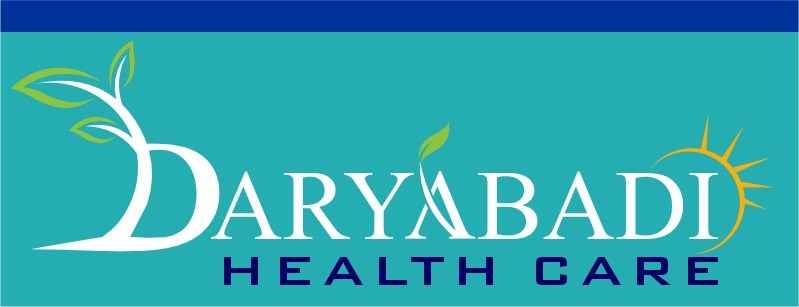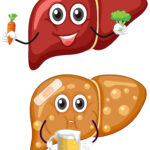Introduction:
Maintaining a balanced and nutritious diet is essential for overall health and well-being, regardless of dietary preferences. For non-vegetarians, incorporating a variety of foods from different food groups is key to meeting nutritional needs and promoting optimal health. In this blog post, we’ll provide suggestions for a well-rounded diet plan tailored to non-vegetarians, focusing on nutrient-rich foods that support vitality and longevity.
DISCLAIMER: The information provided in this blog is for educational and informational purposes only and is not intended as medical advice. The content is not intended to diagnose, treat, cure, or prevent any disease. Readers are advised to consult with a qualified healthcare professional regarding their specific health concerns and before starting any herbal remedies or health regimen. While every effort has been made to ensure the accuracy and completeness of the information presented, the author and publisher assume no responsibility for any errors or omissions. The use of herbal remedies and traditional medicine should be undertaken with caution and under the guidance of a qualified healthcare practitioner, especially for individuals with pre-existing medical conditions or those taking medications. The inclusion of specific herbs or formulations in this blog does not imply endorsement or recommendation. Individual responses to herbal remedies may vary, and it is important to consider individual health needs and sensitivities. Always read product labels and instructions carefully before use. By accessing and using this blog, readers acknowledge and agree to the terms of this disclaimer and release the author and publisher from any liability arising from the use or misuse of the information provided.
Understanding Nutritional Needs:
Non-vegetarians have access to a wide range of animal-based foods, including meat, poultry, fish, eggs, and dairy products. These foods are rich in essential nutrients such as protein, iron, zinc, vitamin B12, omega-3 fatty acids, and calcium, which are important for muscle growth, immune function, energy production, and overall health.
While animal-based foods can provide valuable nutrients, it’s essential to balance them with plant-based foods such as fruits, vegetables, whole grains, legumes, nuts, and seeds to ensure a diverse and nutrient-rich diet. Incorporating a variety of foods from different sources helps optimize nutrient intake and promote overall health and well-being.
Sample Diet Plan for Non-Vegetarians:
Here’s a suggested diet plan for non-vegetarians, designed to provide a balance of macronutrients (carbohydrates, protein, and fats) and micronutrients (vitamins and minerals) for optimal health:
Breakfast:
- Scrambled eggs or an omelette made with vegetables such as spinach, bell peppers, and tomatoes.
- Whole grain toast or multigrain bread.
- Fresh fruit such as berries, oranges, or bananas. Herbal tea or black coffee.
Mid-Morning Snack:
- Greek yogurt with mixed nuts and seeds (almonds, walnuts, pumpkin seeds, chia seeds).
- A piece of fruit such as an apple or pear.
Lunch:
- Grilled chicken or fish fillet (salmon, trout, or mackerel).
- Quinoa or brown rice pilaf with mixed vegetables (broccoli, carrots, zucchini).
- Leafy green salad with avocado, cherry tomatoes, and balsamic vinaigrette dressing.
Afternoon Snack:
- Cottage cheese or paneer with cucumber slices and whole grain crackers.
- Hummus with carrot and celery sticks for dipping.
Dinner:
- Lean beef or turkey meatballs with whole wheat pasta and marinara sauce.
- Steamed green beans or asparagus.
- Mixed leafy green salad with olive oil and lemon dressing.
Evening Snack:
- Hard-boiled eggs or egg salad.
- Sliced cheese with whole grain crackers.
Hydration:
- Drink plenty of water throughout the day to stay hydrated.
- Limit sugary beverages and opt for herbal teas, infused water, or sparkling water with lemon or lime.
Additional Tips for Non-Vegetarians:
- Choose lean cuts of meat, poultry, and fish to reduce saturated fat intake and promote heart health.
- Include fatty fish such as salmon, sardines, and trout regularly to boost omega-3 fatty acid intake and support brain and heart health.
- Incorporate a variety of colorful fruits and vegetables into your meals to increase antioxidant intake and promote overall health and well-being.
- Experiment with different cooking methods such as grilling, baking, steaming, and sautéing to enhance flavor and retain nutrients in your food.
- Limit processed and fried foods, as they tend to be high in unhealthy fats, sodium, and additives.
CONCLUSION:
A balanced diet rich in nutrient-dense foods is essential for non-vegetarians to meet their nutritional needs and support overall health and well-being. By incorporating a variety of animal-based and plant-based foods into your meals, you can enjoy a diverse and flavorful diet that nourishes your body and promotes vitality. Remember to listen to your body’s hunger and fullness cues, stay hydrated, and prioritize whole, unprocessed foods for optimal health and longevity




